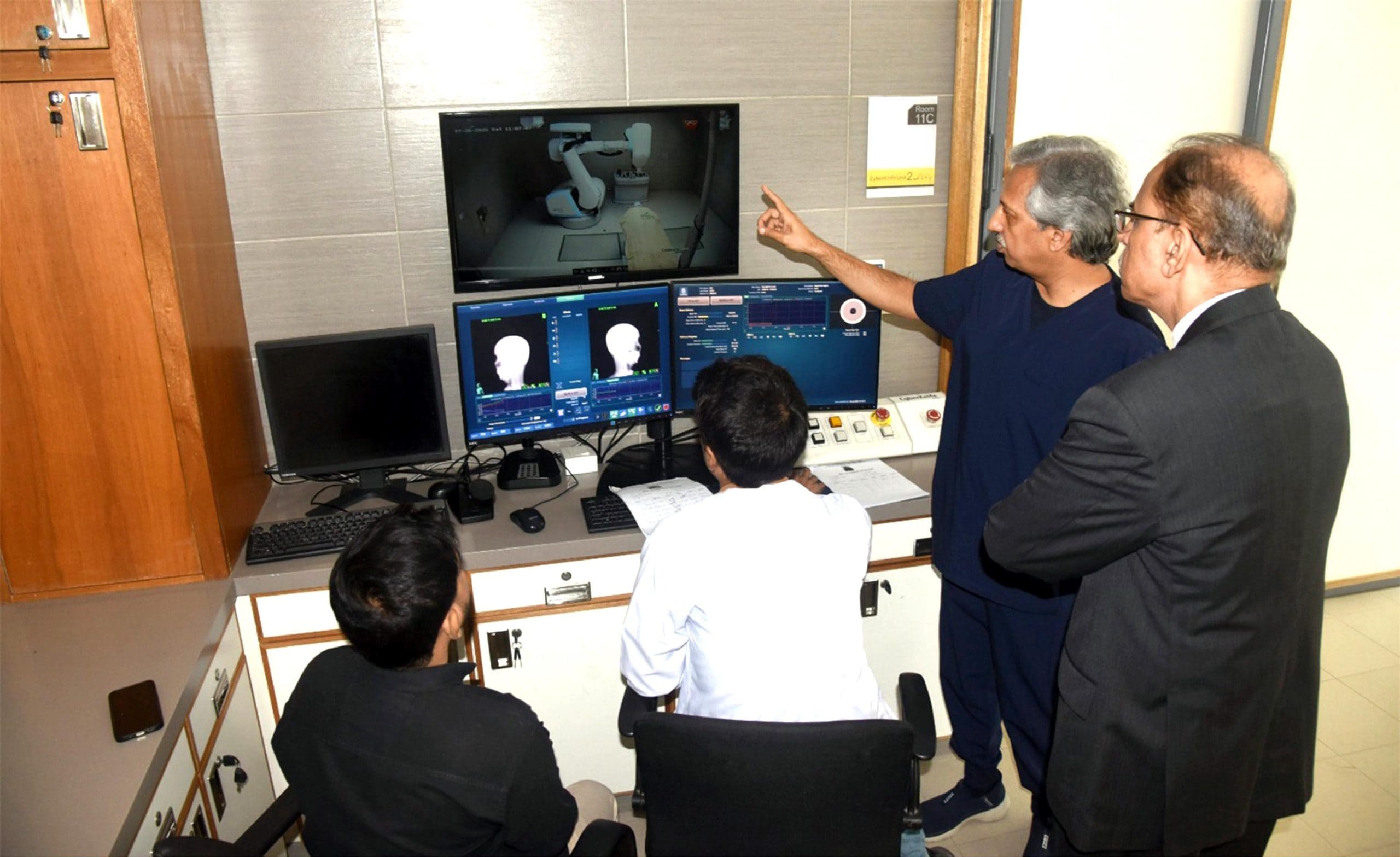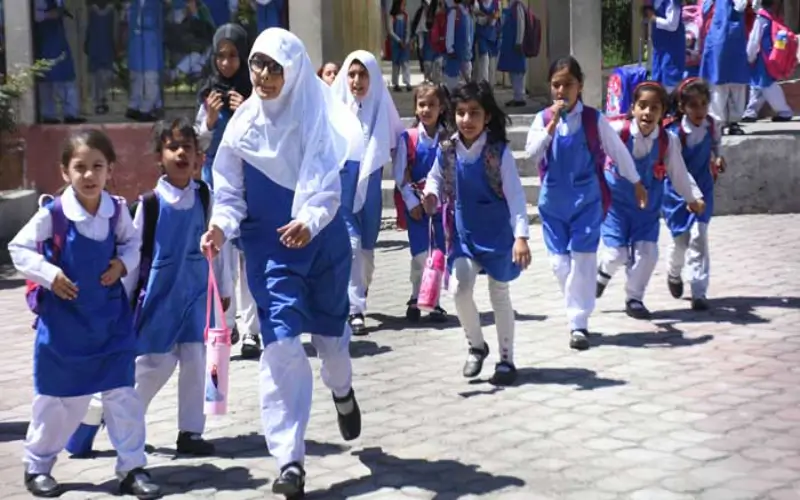Chief Justice of the Sindh High Court, Justice Muhammad Junaid Ghaffar, visited the Radiation Oncology Section at Jinnah Postgraduate Medical Centre (JPMC) on Saturday, where he praised the institution’s remarkable transformation and its free, world-class cancer treatment facilities as a model for public healthcare in Pakistan.
Welcomed by Patients’ Aid Foundation (PAF-JPMC) board members Mushtaq Chhapra, Shabbir Diwan, and Prof. Tariq Mahmood, the Chief Justice received a detailed briefing on how the JPMC, in partnership with the Government of Sindh, has evolved through a public-private model. Over the past 13 years, the hospital has expanded from a 1,185-bed to a 2,208-bed facility.
Once construction of the 12-storey Sardar Yasin Malik Medical Complex and the 7-storey Rabia Rashid Soorty Employees Ward is completed, JPMC is expected to become the largest healthcare institution in the country. Justice Ghaffar was informed that the entire range of cancer diagnostics and treatment offered at the facility is completely free and non-discriminatory, benefiting patients regardless of nationality, religion, or ethnicity. So far, individuals from 15 countries and 167 cities have been treated at JPMC.
The Chief Justice was briefed on the evolution of the Cyberknife technology at the center. The first unit, introduced in 2012, required 150 minutes per session. A second unit installed in 2018 reduced treatment time to 60 minutes, and the latest Cyberknife—donated by the Sindh government in 2024—can now complete treatment in just 23 minutes. The technology, already recognized for treating brain tumors, is now among the safest methods for curing stage-one prostate cancer. Further advancements include the addition of two Tomotherapy units, with two more expected to become operational by the end of the year at the soon-to-launch Bilquis and Abdul Sattar Edhi Breast Radiation Bay.
This upcoming section, exclusively staffed by women, will allow breast cancer radiation treatment in just five sessions, a major improvement from the previous 16 to 28-session standard. It will have the capacity to treat up to 160 patients daily, making it the country’s first precision-guided radiation unit of its kind. After touring the facility, Justice Ghaffar expressed deep appreciation, calling the cancer care infrastructure at JPMC a “beacon of hope.”
He commended the partnership between PAF and the Sindh government, emphasizing its success as a benchmark for other public sector institutions aiming to deliver quality healthcare at no cost. He also acknowledged the pivotal role of donors, particularly the people of Karachi, and praised the dedication of PAF’s team in sustaining such an ambitious healthcare mission. He stressed the importance of adopting similar models nationwide to improve public health access.
However, he also noted that the impressive scale of operations at JPMC demands a swift and strategic recruitment of qualified professionals to maintain the quality and efficiency of critical care. Addressing human resource shortages, he said, is essential for the smooth operation of highly advanced medical technologies and effective patient management. The visit concluded with the presentation of a commemorative memento to the Chief Justice by PAF-JPMC.




